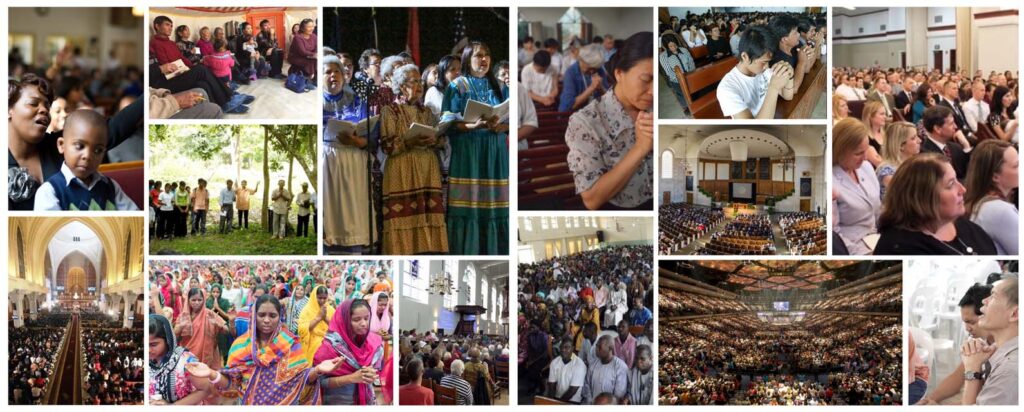Should we all sing in harmony or unison? Should all churches sing from the same songbook? Should we use the same instruments as others? Is singing the same songs a sign of Christian unity?
God intended the world to be different. He created different colours, different types of vegetation, different natural resources, different stars, different genders, different kinds of animals, different shapes, tastes, smells, patterns, habits, traditions, and different people and groups of people.
Scripture identifies these groups as nations. Psalm 22 says that families of the nations will worship. Psalm 86 says: “All the nations you have made will come and worship before you.” Matthew 25 and Joel 3 mention the gathering of the nations at the end of times. This diversity in people and cultures is recognizable, yet united, in heaven: “a great multitude that no one could count, from every nation, tribe, people and language, standing before the throne and in front of the Lamb” (Revelation 7).
Because people and nations are different, there is diversity in worship. Some churches have roots in the Great Awakenings or the Jesus Movement, which is evident in their songs and music. The music in African-American churches reflects their history and identity. Latino Protestant churches’ cultural background and young Protestant roots impact their worship style and songs. Lutherans (I think LCMS), Presbyterians, Reformed churches, and others have immigrant origins, and their worship reflects their roots.
Different styles of worship, hymnals, tunes, rhythms, and instruments reflect and acknowledge the diversity God embedded in creation. The same cross-cultural doctrine, theology, and love for God, but a different contextual expression in worship.
John L. Bell describes it in this way:
“What makes the same hymn inspire one individual to heroism and lead another to boredom cannot be calculated. It has to do with the mysterious way in which a song connects us
“Singing – A Mennonite Voice” (by Marlene Kropf and Kenneth J. Nafziger.)
to our past, our soul, our future, our Savior.
And because God intended us to be different,
our uniqueness is caught up and reflected in our response to the music of the church.”
People and cultures are created differently and express themselves in a unique way, also in worship. And therefore, we don’t have to do what others do, or sing how/what other’s sing, but worship God as we do.
